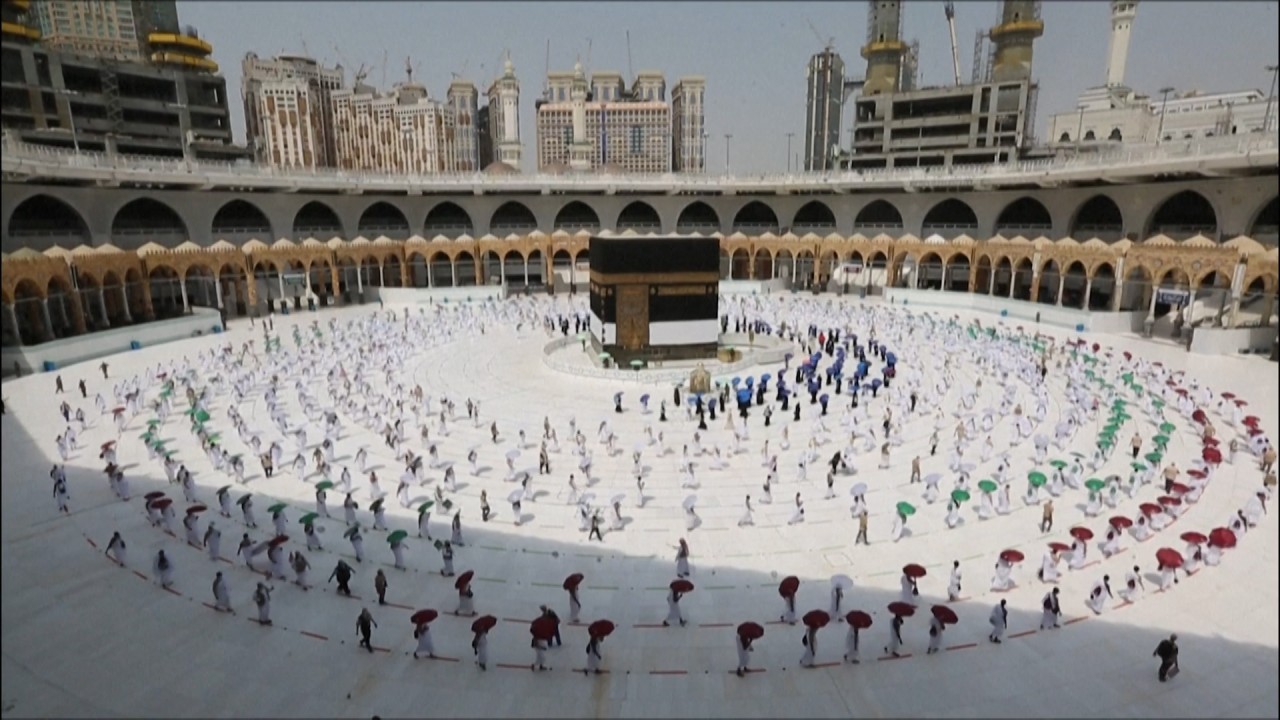
01:31
Haj pilgrimage in Mecca downsized due to coronavirus pandemic
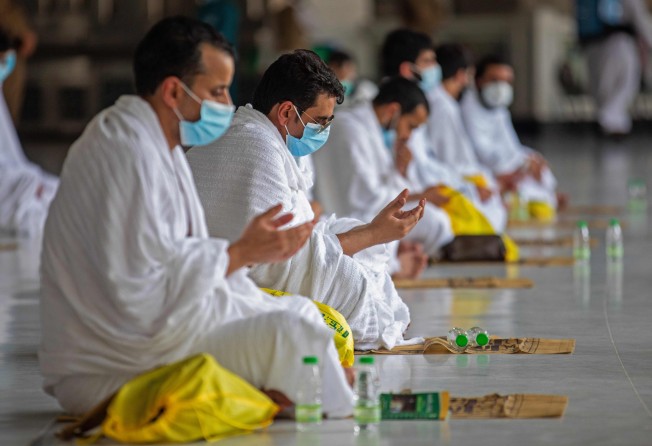
Mask-clad Muslims began the haj on Wednesday, circling Islam’s holiest site along socially distanced paths in the smallest pilgrimage in modern history as the Saudi hosts strive to prevent a coronavirus outbreak.
The haj, one of the five pillars of Islam and a must for able-bodied Muslims at least once in their lifetime, is usually one of the world’s largest religious gatherings.

01:31
Haj pilgrimage in Mecca downsized due to coronavirus pandemic
But this year only up to 10,000 people already residing in the kingdom will participate in the ritual, a tiny fraction of the 2.5 million pilgrims from around the world that attended last year.
Pilgrims walked into Mecca’s Grand Mosque to begin the ritual with their first tawaf, the circumambulation of the Kaaba, a large cubic structure draped in gold-embroidered cloth towards which Muslims around the world pray.
Pilgrims were brought in small batches, walking along paths marked on the floor, in sharp contrast to the haj in previous years when a sea of humanity swirled around the Kaaba.
The tawaf, which involves walking around the structure seven times, was completed in “record time”, a security commander told state media.
“This is an indescribable feeling,” said Mohamed Ibrahim, a 43-year-old Egyptian electrician who was among the pilgrims chosen. “It feels like a dream.”
Pilgrims will be required to wear masks and observe social distancing during a series of rites that are completed over five days in the holy city of Mecca and its surroundings.
They said they were given ihram – a seamless white garment worn by pilgrims – made from a resistant material.
Those selected to take part were subject to temperature checks and placed in quarantine as they began trickling into Mecca at the weekend.
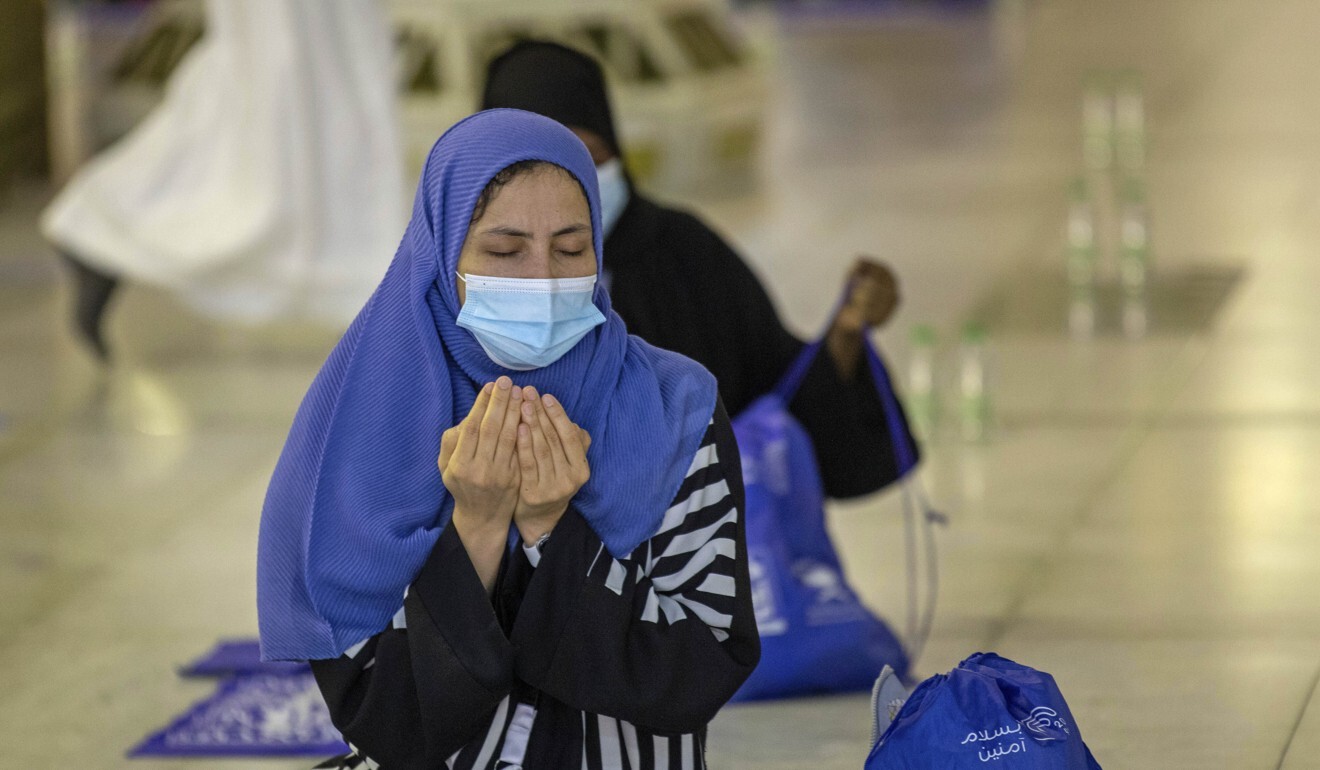
State media showed health workers sanitising their luggage, and some pilgrims reported being given electronic wristbands to allow authorities to monitor their whereabouts.
Workers, clutching brooms and disinfectant, were seen cleaning the area around the Kaaba. Using his bare hands, one worker was shown daubing its outer wall with perfume.
Authorities have cordoned off the Kaaba this year, saying pilgrims will not be allowed to touch it, to limit the chances of infection.
The foreign press are barred from this year’s haj, usually a huge global media event, as the government tightens access to Mecca.
Saudi authorities also reported setting up multiple health facilities, mobile clinics and ambulances to cater to the pilgrims.
“There are no security-related concerns in this pilgrimage, but (downsizing) is to protect pilgrims from the danger of the pandemic,” said Saudi Arabia’s director of public security, Khalid bin Qarar Al-Harbi.
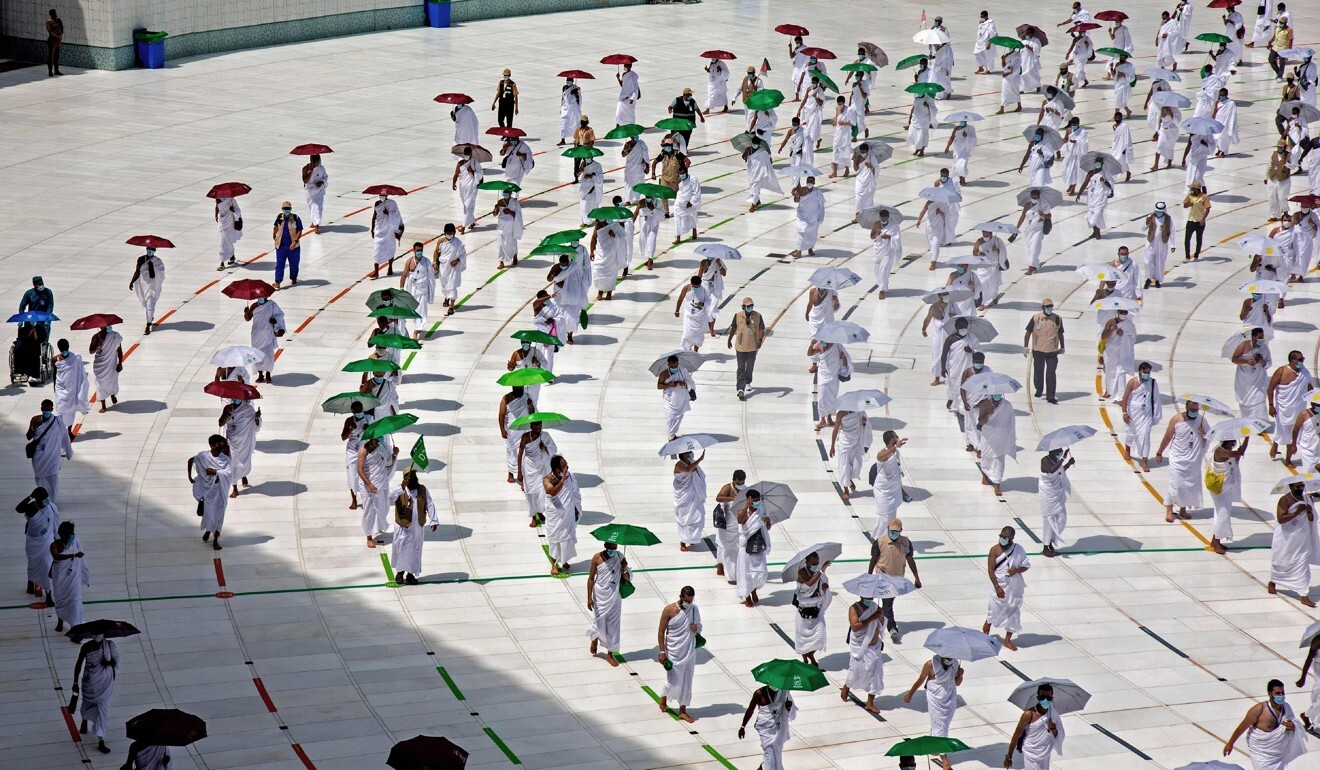
The pilgrims were set to travel later on Wednesday to Mina, where they will spend the night. A district of Mecca, it sits in a narrow valley surrounded by rocky mountains and is transformed each year into a vast encampment for pilgrims.
Worshippers will on Thursday climb Mount Arafat, also known as the “Mount of Mercy”, for hours of prayers and Koran recitals.
After descending the following day, they will gather pebbles and perform the symbolic “stoning of the devil”.
Saudi authorities initially said only around 1,000 pilgrims residing in the kingdom would be permitted for the haj, but local media reports say as many as 10,000 will be allowed to take part.
Some 70 per cent of the pilgrims are foreigners residing in the kingdom, while the rest are Saudi citizens, authorities said.
All worshippers were required to be tested for coronavirus before arriving in Mecca and will also have to quarantine after the pilgrimage as the number of cases in the kingdom nears 270,000 – one of the largest outbreaks in the Middle East.
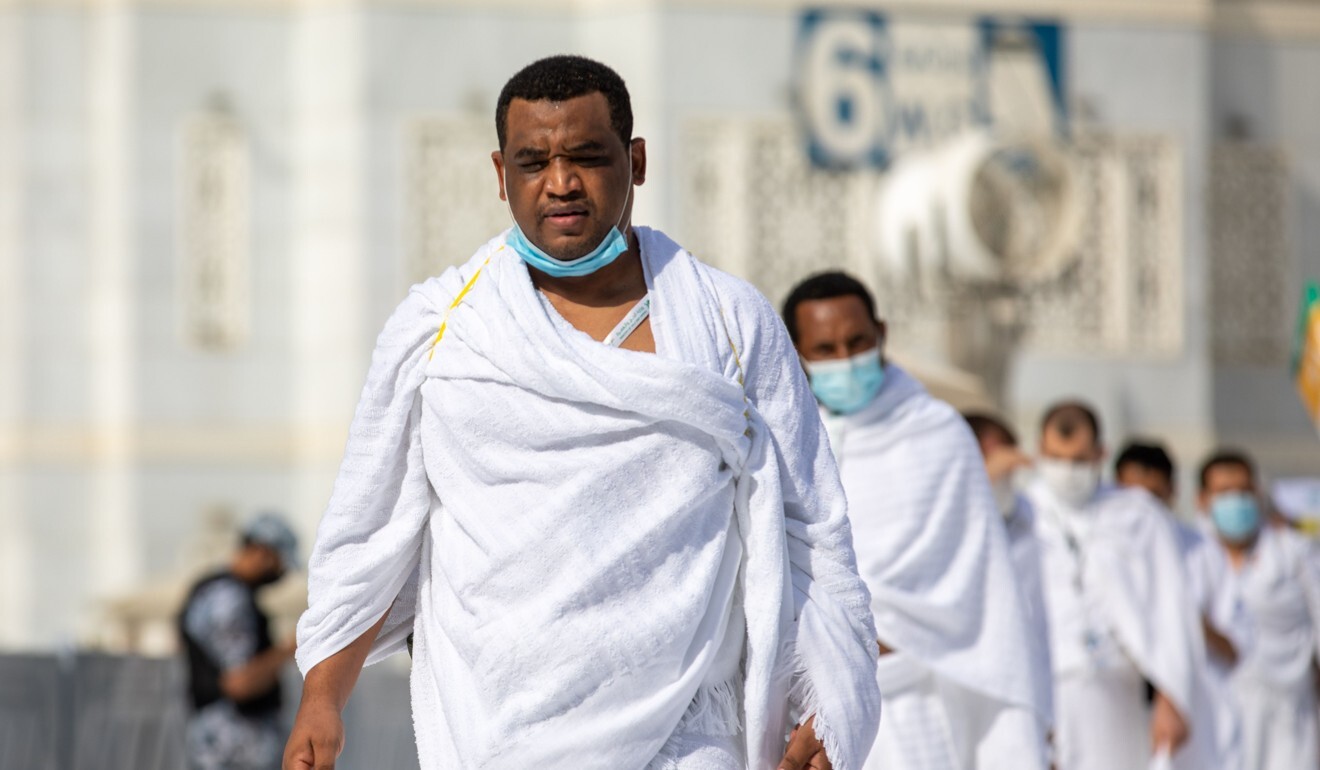
They were given elaborate amenity kits that include sterilised pebbles for the stoning ritual, disinfectants, masks and a prayer rug, according to a haj ministry document.
The ministry said foreign residents of the kingdom from around 160 countries competed in the online selection process but it did not say how many people applied.
Some disappointed applicants have complained that the government-run lottery was not clearly outlined and that no reason was given for their rejection.
But Haj Minister Mohammad Benten insisted the process was transparent, telling the Saudi-owned Al-Arabiya television that “health determinants” formed the basis of selection.
Despite the pandemic, many pilgrims consider it safer to participate in this year’s ritual without the usual colossal crowds cramming into tiny religious sites, which make it a logistical nightmare and a health hazard. Even in a regular year, the haj leaves pilgrims exposed to a host of illnesses.